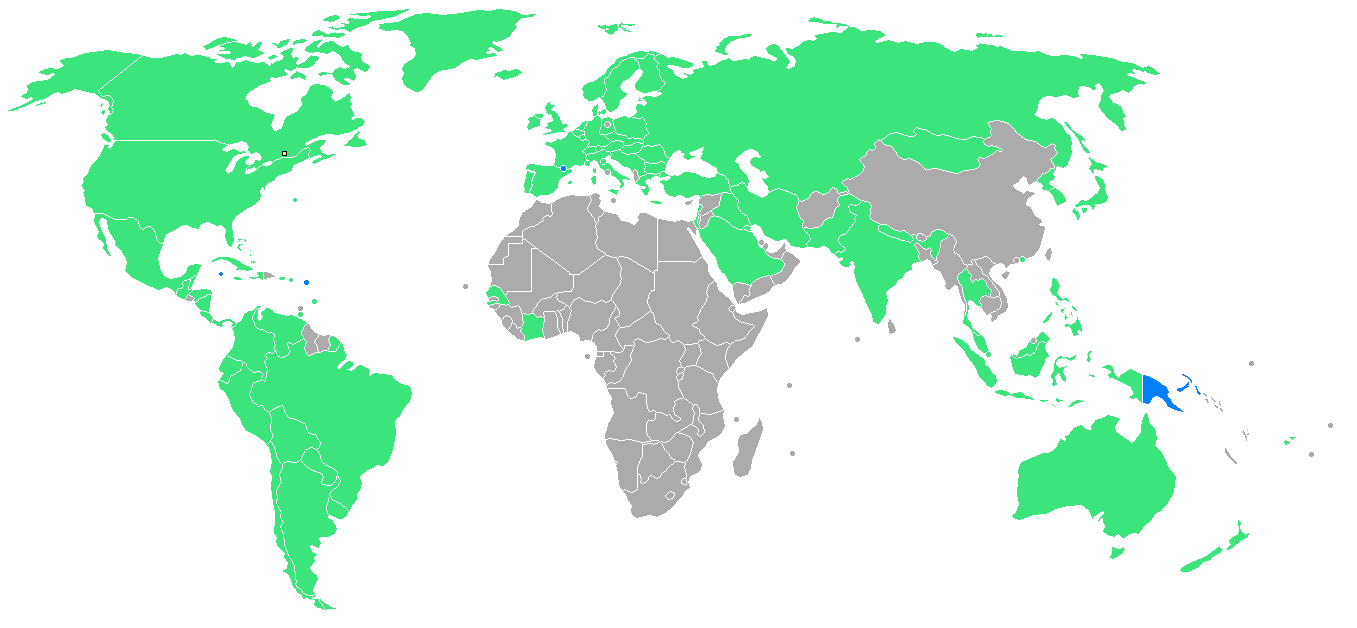The Threat Assessments program reveals the breadth of potential threats. In the previous five years alone, two-dozen diplomats around the world had been kidnapped (and six others assassinated). In 1971 and 1972 there were at least 12 aircraft hijackings involving Canadian airlines (metal detectors were introduced in large numbers at airports in 1973). Anti-Castro activists initiated a series of violent actions in Canada, including the bombing of a Cuban trade mission in Montreal in 1972 that led to the death of a consular official. The arrest and deportation of a member of the Japanese Red Army in August 1975 prompted that organization to declare that Canada could be a target. Only weeks before the opening ceremonies in Montreal, German and Palestinian terrorists hijacked an Israeli plane at the Entebbe airport in Uganda, which led to a dramatic rescue mission by Israeli Special Forces. The threat assessment reports routinely referenced terrorist organizations such as the Irish Republican Army and the Palestinian Liberation Organization as well as organizations originating in Cuba and Japan.
There was also a generalized concern around Trotskyists and communists, which had been a preoccupation of the RCMP’s Security Service since its inception. The Security Service was also keeping on eye on Chilean refugees in Canada who might use the games to protest the dictatorship, as well as Haitian immigration because they were black and concentrated in Montreal. As part of the process of trying to identify all conceivable threats, there was a section in the threat assessments committed to right-wing radicals. The most common references were to the Jewish Defence League, Ku Klux Klan and the Western Guard. The former was described as a violence-prone movement in New York City with ties to organizations in Toronto and Montreal; the latter was a white supremacist organization based in the United States that had distributed hate mail to black people in Toronto. Furthermore, the Service was concerned with potential labour disruptions during the games such as striking penitentiary guards, hospital workers, building trades workers or Hydro-Quebec employees. Given its limited resources, the RCMP was forced to produce a hierarchy of threats and focus its planning efforts on the most tangible dangers.

A total of 4796 police and military personnel were given training in preparation for the Olympics. The climax of the planning operation was seven mock “conflict games” that were held between 1975 and 1976. Cabinet had approved the allocation of thousands of Canadian Forces personnel to support the RCMP and local police during the Olympics. The operation was dubbed Operation Stratacur (Opération STRAtégiques et TACtiques d’Urgence). The primary threats identified in the planning operation included: hostage taking; occupation of a building; aircraft hijacking or accidents; bomb threats or suspicious parcels; illegal interception of police radio waves; labour conflicts; riots and crowd control; natural disasters; an attack on the Queen; an epidemic or shutdown of a major utility; and a disaster in the metro system. The conflict games demonstrated, among other things, the need for personnel with expertise in hostage negotiations.
After extensive research, planning and consultation with foreign allies, the Security Service concluded that there was no evidence to indicate that a terrorist organization planned to attack the Montreal Olympics. But they had been wrong before. The lack of any explicit threat did not forestall the implementation of an impressive security operation.




